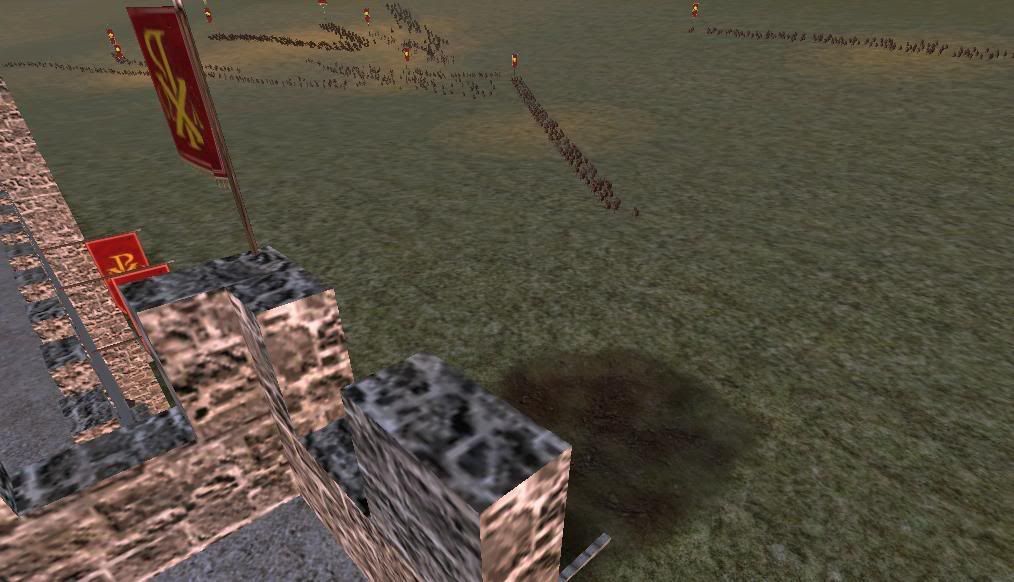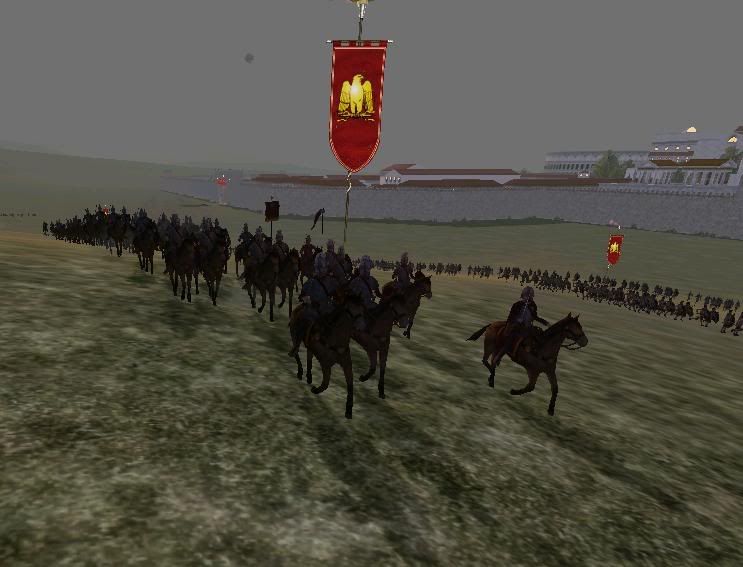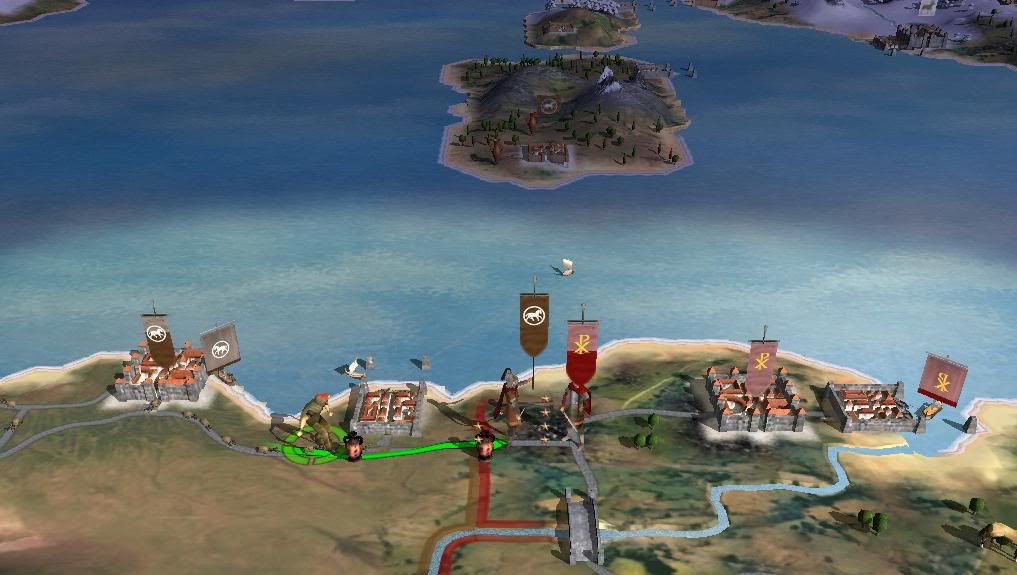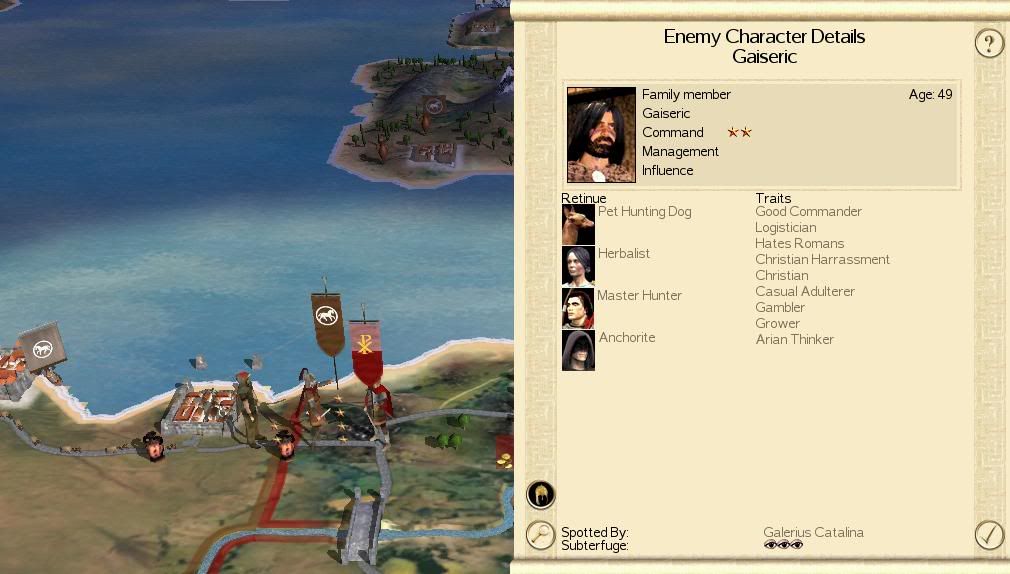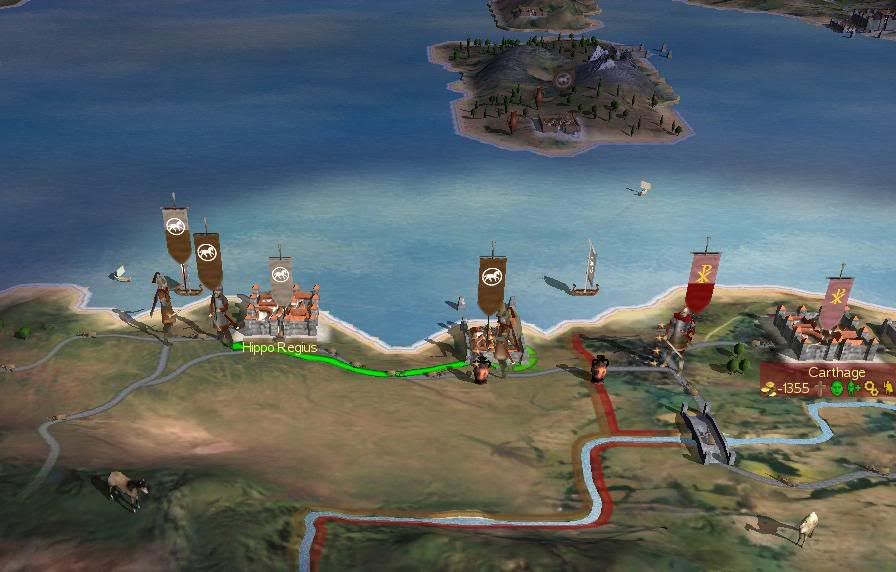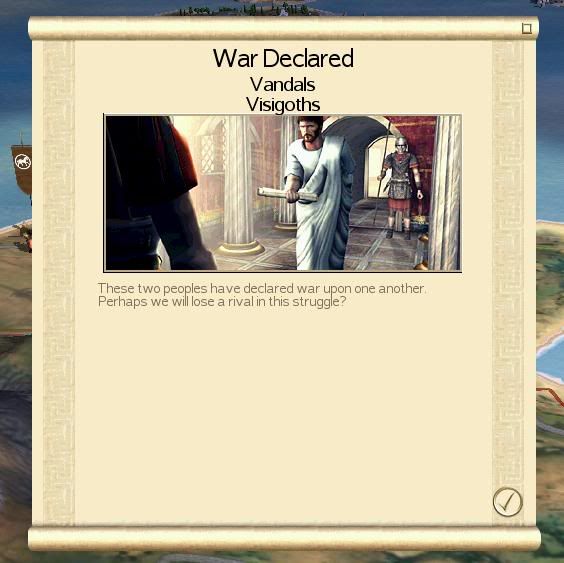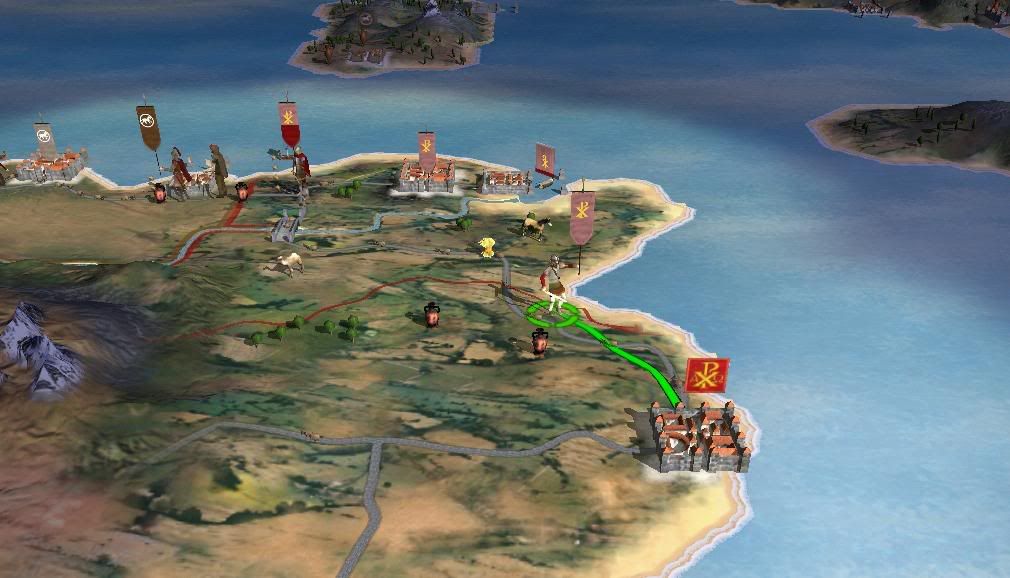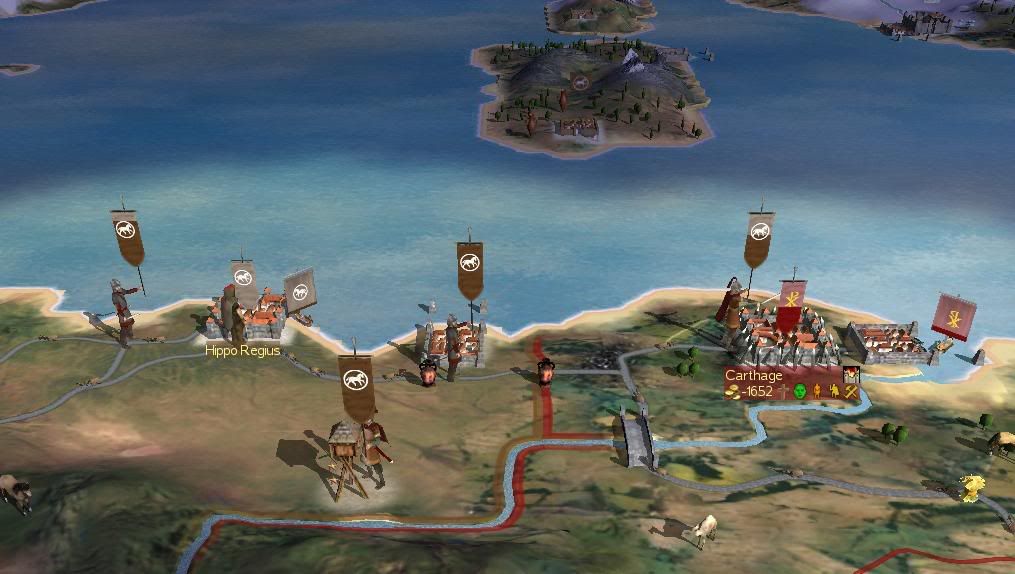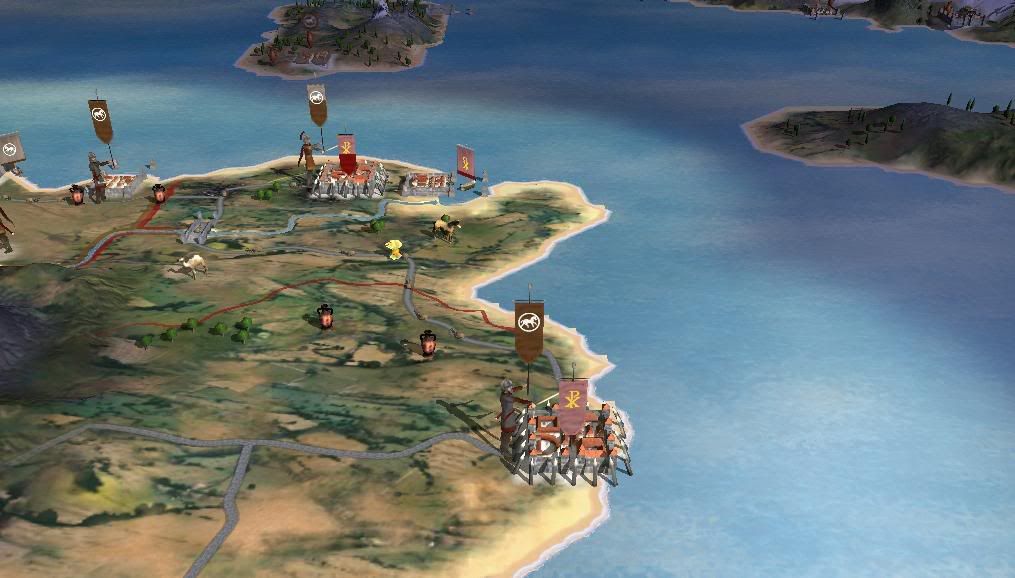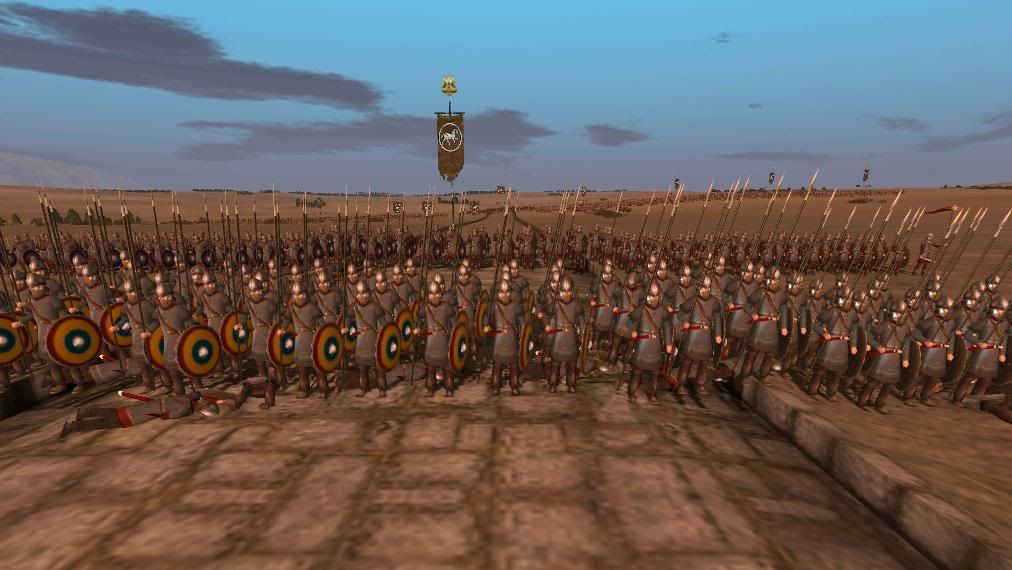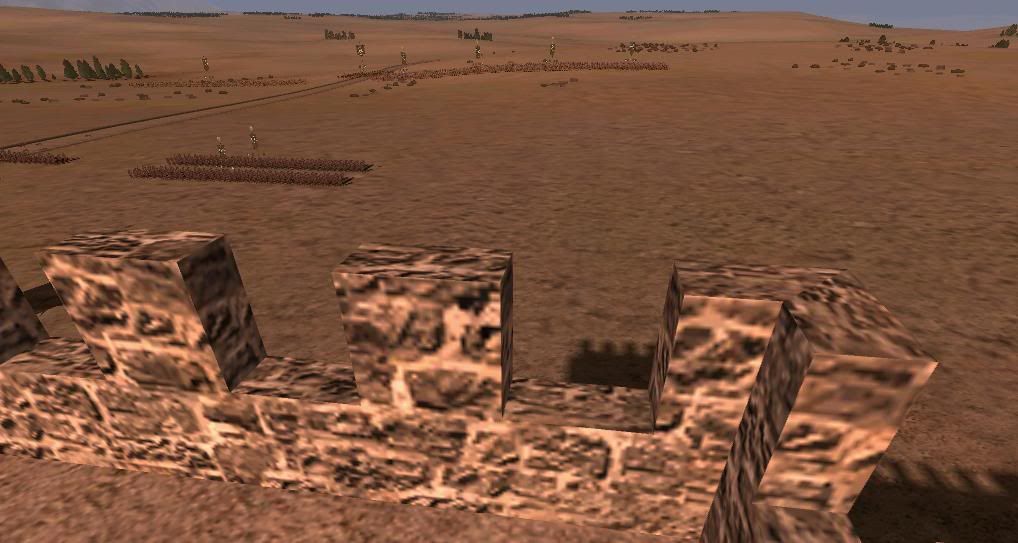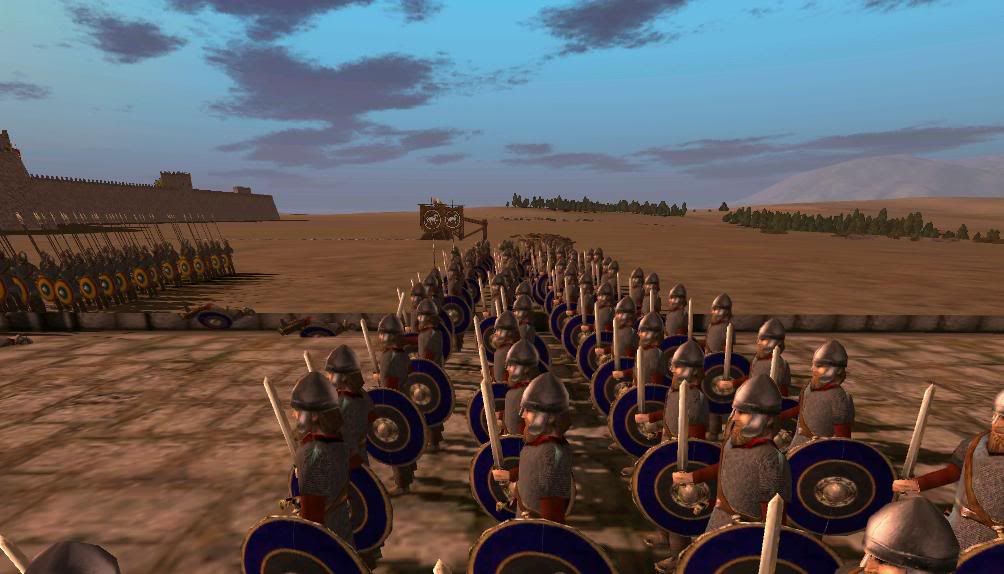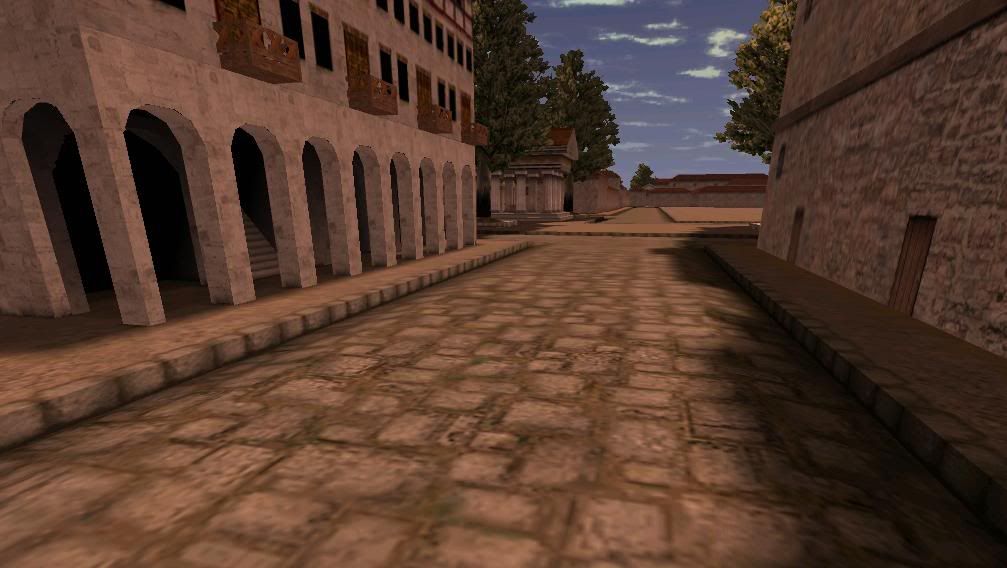The Day of Mars
The soldiers of Rome marched in good order back through the west gate of Carthage. They were covered in the stains of battle - dust, sweat and blood - but carried their standards high. Men were bloodied now and the legionaries felt the old pride swell in their hearts. Across the plain behind them, marked by the long cut of the Roman road, lay strewn the dead. Roman and Vandal and Alan.
To Bonifacius, galloping past the soldiers, who cheered him on, the cost had been high. Over six hundred men lay cut down on the field of battle, with many more wounded and in need of respite to recover and bring the ordines back up to strength. He doubted they would be given the chance to effect that. But first, the Dux had more pressing matters to attend to.
The ancient docks of Carthage were ramshackle and sprawling. Centuries of use had rendered them a jumble of piers, loading areas, warehouses and dry-docks, all run-down and in disrepair. It was to the centre of this chaos that Bonifacius and his small guard escort galloped in some urgency, aided by the relative absence of crowds, all of whom were now upon the walls or crowding the old forum to celebrate the victory. Without pause, he mounted the long stone pier and only halted when a confused Justinianus emerged form a tangle of rigging and looked up at him in enquiry. Around them both lay the two Imperial triremes of the Carthage Classis, humming with activity from the sailors and the marines.
Bonifacius gestured to the open sea beyond the heavy boom chain that secured the harbour entrance and bade the newly created Praepositus to cast his eyes also. It was then that Justinianus saw that the boom was lowering and beyond it roared the waves and the wind, whipping up white manes upon the sea. Then the Dux told him that the Vandal galleys were pulling back to aid the barbarians' flight from the battle. All was in disarray. And now, as succour had come from both land and sea with the arrival of Romulus and Luca, he, the Dux, wanted victory by land and sea to seal the omens. Could the ‘Africanus’ and the ‘Alexander’ deliver?
The newly-created commander of the Classis needed no further encouragement. Calling for the Tribunes of the galleys and Ducenarii of the marines, he turned about and began the task of readying the warships for sea. In the distance, to the sounds of heavy groaning, the long, iron, chain sank into the waves. Bonifacius gestured to his guards to dismount and together they ascended a nearby tower to watch the departure of Justinianus.
He knew it was gamble but it was ever the fortunes of war to favour the bold. And Justinianus, the second in command of the ‘Alexander’ and now raised to be Praepositus of the fleet, needed to be bloodied. Now was the time to send out the two warships to break the blockade while the Vandals were still in confusion.
To the hardy shouts of the rowers, aided by the drummer on each fore-deck, the two galleys slid out from their moorings, extending their oars with expert skill. Sunlight sparkled from the bronze snout of the rams, each surmounted by the old eyes of war. Moving like snakes, the ‘Africanus’ and the ‘Alexander’ carved a frothy wake through the waters and out into the open sea, as marines moved along the thin inner deck, with their shields glinting in the sun.
For a single moment, Bonifacius saw Justinianus look back towards him and raise his fist over his armoured chest in salute.
In the days after the great battle on the plain outside Carthage in which the Roman forces had massacred the barbarians in triumph, few men remembered the clashing of the galleys later that afternoon. Few men saw it, it must be admitted. Those that did were not eager to boast about it and detract from the glory being sung now by the legionaries. But those few who did see it and indeed had fought in it remembered it as vividly as anything remembered upon the plain as the ‘Jaws of Bonifacius’ had closed down upon the Vandals.
Two Roman triremes had carved a purple wake amongst the Vandal ships and had not stopped until no barbarian vessel remained beneath the mighty bastions of Carthage or in her waters. The fighting had not been glorious like the charge of cavalry or the locked shields of the infantry bearing down upon the enemy but it had been bloody none the less. Short, desperate, struggles around the boarding ramps, arrows peppering the rowers and tiller men, fire-pots pouring down upon the rigging, and men drowning in the wreckage of spars, sails and rigging, all stained with the dye of war. It had been short and it had been brutal but it had been a Roman victory which found both the ‘Africanus’ and the ‘Alexander’ triumphant upon the waves - and Justinianus delivered to Bonifacius the victory which secured both Roman arms on the sea and on the land.
In the days which followed, as the wounded were tended to and scouts trailed the rabble of Vandals as they retreated westwards back to Hippo Regius, the Senators met and held accounts. Romulus, now appointed the commissariat officer to replace Silvanus, reported that with the Vandal blockade lifted communications with Harumetum were re-established. Promotus Vettus and his sons were remaining in the countryside to the west to secure the outlying districts and farmsteads from Vandal pillaging or reprisals. Supplies were healthy but raising taxes and ensuring a prosperous trade remained difficult, given the current uneasy situation. Felix and Luca agreed with the young Senator. A battle did not win a war and despite the high morale of the men the long term prospects looked bleak. The Dux rose up at that and took Romulus by the shoulder. It did not matter whether the men were in high morale or not, he argued, for this Roman here, despite his youth and rawness - and Luca was seen to smile at that - had brought a gift so valuable that if Romulus did nothing more for Rome in all his life then the Eternal City would still owe him a debt it could never repay - and with that Bonifacius threw open the doors to the treasury and showed them again the masses of gold the Senator had brought from Brundisium and Regium. The gold solidii of Rome shone in the dim light and spilled out of the chests onto the floor. This, said the Dux, was what would win them this fight in the end.
It was on a dark night some days later, with the city still drowsy after celebrating the victory, that a lone rider emerged from out of the dim tracts to the south and presented himself to the Dux alone and unguarded. In a solitary tower, away from prying eyes, this small man, dressed in worn riding leathers and carrying an old Roman pugio, gripped the arm of the Dux and each then addressed the other by the personal name each bore. Bonifacius smiled in a way not even Antiochus had seen him smile and then two men fell to talking alone by the dim light of a single candle on a window sill.
The next day, this lone man, named Galerius by the Dux, his riding hood pulled up high over his sun-burnt face, rode westwards on an unassuming pony, his pugio buried deep in his tunic. Bonifacius watched his old friend disappear down the Via Claudiani and wondered if he would ever see him again.















 Reply With Quote
Reply With Quote







